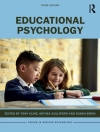In far too many places, the worldwide trade in English-language teaching, testing and publishing has become a self-perpetuating, self-congratulating, neocolonial monster … a veritable multi-headed Hydra. Too often the English language industry aggressively promotes itself as some sort of “uplifting”, “essential”, “proper” or even “better” means of communication than any other language. Unfortunately, its relentless global outreach is taking place at the direct expense, and the active denigration, of local and regional languages – not to mention individual identities.
English Language as Hydra brings together the voices of linguists, literary figures and teaching professionals in a wide-ranging exposé of this monstrous Hydra in action on four continents. It provides a showcase of the diverse and powerful impacts that this ever-evolving, gluttonous beast has had on so many non-English language cultures – as well as the surreptitious, drug-like ways in which it can infiltrate individual psyches.
Tabela de Conteúdo
Contributors
Acknowledgements
Series Editor’s Note – Tove Skutnabb-Kangas
The Genesis of this Book – Vaughan Rapatahana and Pauline Bunce
Foreword – Robert Phillipson
Introduction: English Language as Thief – Vaughan Rapatahana
1. The Challenge – Ndaraca ya Thiomi: Languages as Bridges – Ng˜ug˜ı wa Thiong’o
2. English Language as Bully in the Republic of Nauru – Xavier Barker
3. Out of Sight, Out of Mind… and Out of Line: Language Education in the Australian Indian Ocean Territory of the Cocos (Keeling) Islands – Pauline Bunce
4. English Language as Juggernaut – Aboriginal English and Indigenous Languages in Australia – Robyn Ober and Jeanie Bell
5. English Language as Nemesis for Māori – Graham Hingangaroa Smith and Vaughan Rapatahana
6. A Personal Reflection: New Zealand Māori and English – Tamati Cairns
7. The Malchemy of English in Sri Lanka: Reinforcing Inequality through Imposing Extra-Linguistic Value – Arjuna Parakrama
8. English Language as Governess: Expatriate English Teaching Schemes in Hong Kong – Eugene Chen Eoyang, Pauline Bunce and Vaughan Rapatahana
9. English Language as Auntie: Of ‘Good Intentions’ and a Pedagogy of Possibilities – ELT in the Philippines and its Effects on Children’s Literacy Development – Lalaine F. Yanilla Aquino
10. It’s Not Always English: ‘Duelling Aunties’ in Brunei Darussalam – Noor Azam Haji-Othman
11. English Language as Siren Song: Hope and Hazard in Post-Apartheid South Africa – Sandra Land
12. English Language as Border-Crossing: Longing and Belonging in the South Korean Experience – Joseph Sung-Yul Park
13. English and Mandarin in Singapore: Partners in Crime? – Rani Rubdy
14. English Language as Intruder: The Effects of English Language Education in Colombia and South America – a Critical Perspective – Anne-Marie de Mejía
Afterword: Could Heracles Have Gone About Things Differently? – Alastair Pennycook
Coda: One Colonial Language: One Great Tragic Epic. English in Malaysia and Beyond – Muhammad Haji Salleh
Sobre o autor
Pauline Bunce is an Australian teacher who has worked in Brunei Darussalam, Hong Kong, Malaysia and Sri Lanka. Her doctoral research examined the reading challenges posed by an alphabetic script for Chinese learners of English in Hong Kong.












